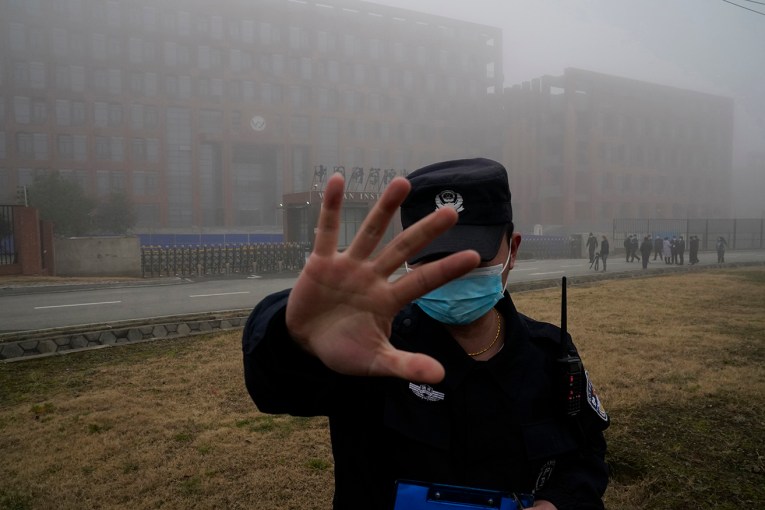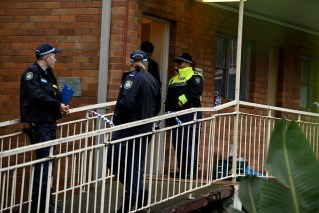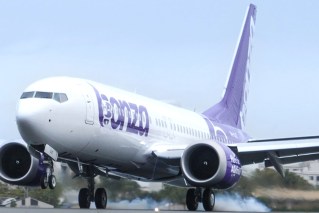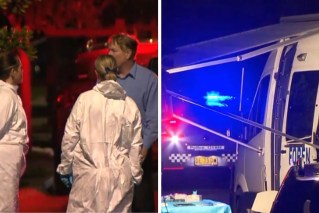Wong pledges $21.5m in Gaza aid during Middle East visit

Foreign Minister Penny Wong says Australia is “gravely concerned” by the worsening humanitarian situation in Gaza and has pledged a further $21.5 million, with a particular focus on citizens in the war-torn strip.
Wong is visiting the Middle East and made the comments during the first stop in Jordan, where she met its foreign minister Ayman Safadi, King Abdullah II and the UN’s senior humanitarian co-ordinator Sigrid Kaag.
Wong said the situation for people in Gaza was dire.
“Australia is gravely concerned by the worsening humanitarian situation in Gaza,” she said on Tuesday (local time).
“Australia continues to call for safe and unimpeded humanitarian access to affected populations, and further humanitarian pauses to enable the scaled up delivery of aid, safe passage for civilians and the release of hostages.”
The funding included $4 million for the Red Cross, $6 million for the United Nations Relief and Works Agency, and $11.5 million for refugee programs in Lebanon and Jordan.
Australia has now supplied $46 million in humanitarian aid since the conflict escalated following October 7 attacks by Hamas, which has been designated a terrorist organisation by the federal government.
Wong addressed questions about Australia’s position on a case against Israel in the International Court of Justice which accuses the country of genocide.
The South African government presented its case against Israel in the ICJ last week.
“Our support for the ICJ and respect for its independence does not mean we accept the premise of South Africa’s case,” she said.
“We will continue to work for a just and enduring peace between Israelis and Palestinians.”
Wong hosed down suggestions Australia could demand assurances in the Middle East for a ceasefire in the Israel and Hamas conflict.
But she said Australia could still add to calls for peace in the Middle East as demands for a sustainable ceasefire grow.
“I don’t think Australia can come to the region, demand specific assurances,” she said in Jordan.
“What we can do is come to the region and express our voice to that of the cause of peace … our view is that peace ultimately will come if there is genuine progress towards peace and security for Israel and for the Palestinian people and their legitimate aspirations for statehood.”
Wong will also visit Israel, Occupied Palestinian Territories and the United Arab Emirates during her Middle Eastern trip.
Israeli tanks storm back
In Gaza, Israeli tanks have stormed back into parts they had left last week, residents say, reigniting some of the most intense fighting since the New Year when Israel announced it was scaling back its operations there.
Massive explosions could be seen over northern areas of Gaza from across the border with Israel – a rarity in the past two weeks after Israel announced a drawdown of forces in the north as part of a transition to smaller, targeted operations.
The rattle of gunfire reverberated across the border through the night.
In the morning, contrails snaked through the sky as Israel’s Iron Dome defences shot down rockets fired by militants across the fence, proof they retain the capability to launch them despite more than 100 days of war.
Israel said its forces had killed dozens of Hamas fighters overnight in clashes in Beit Lahiya on Gaza’s northern edge.
Gaza health authorities said the last 24 hours of Israeli bombing had killed 158 people in the Palestinian enclave, raising their toll for the war – in its fourth month — to 24,285, with thousands more bodies feared lost in the rubble.
Israel launched the war to eradicate Hamas after militants stormed across the border fence on October 7, killing 1200 people and capturing 240 hostages.
The war has driven nearly all Gazans from their homes, some several times, and caused a humanitarian crisis, with food, fuel and medical supplies running low.
Under US pressure to reduce civilian casualties, Israel had said it was transitioning from a full-scale ground assault to targeted operations against the Hamas militants that control the enclave.
It began that shift with a pullback in the north.
Defence Minister Yoav Gallant also said on Monday that the more recent ground assault in the south was drawing to a close.
But any path toward de-escalating the war still seems remote, with Israel saying it will not rest until Hamas is destroyed and the militants showing no sign of losing the ability to resist.
Israel Ziv, a retired general who formerly commanded Israeli forces in Gaza, told Reuters that 10-15 per cent of Hamas’ pre-war rocketry corps of about 1000 personnel were believed to be still alive, with 2000 rockets left to be fired.
However, Ziv said Israeli forces had established “extensive control” in Gaza, meaning they could “manoeuvre freely” except in Rafah, Deir al-Balah and Nusseirat, the launch point of Tuesday’s rocket salvo.
Some of the hundreds of thousands of residents who fled the north earlier in the war had begun returning last week to bombed-out areas where the Israelis had withdrawn.
But residents who spoke to Reuters on Tuesday said the abrupt resurgence of fighting in the north would halt plans to try to go home.
“We almost planned to return to our house in Nazla, east of Jabalia, but thank God we didn’t. This morning people living nearby arrived here and told us the tanks pushed back there,” said Abu Khaled, 43, a father of three now living with relatives in severely damaged Gaza City.
“The sounds of bombing from the tanks, from the planes didn’t stop all night. It reminded us of the first day of the ground incursion.”
Israeli forces have fought their way to the centre of Gaza’s main southern city of Khan Younis, and into towns north and east of the central city of Deir al-Balah.
Israeli commando forces carried out targeted raids in Khan Younis to take out militant infrastructure, including offices of several senior regional Hamas commanders, the military said.
Defence Minister Gallant’s announcement on Monday that the major ground offensive in the south would soon end raises the question of whether the Israelis will still try to advance into remaining areas they are yet to enter.
Most of Gaza’s 2.3 million people are crowded into those few areas, including Deir al-Balah and Rafah, which is on the southern edge of the Strip bordering Egypt.
-with AAP








